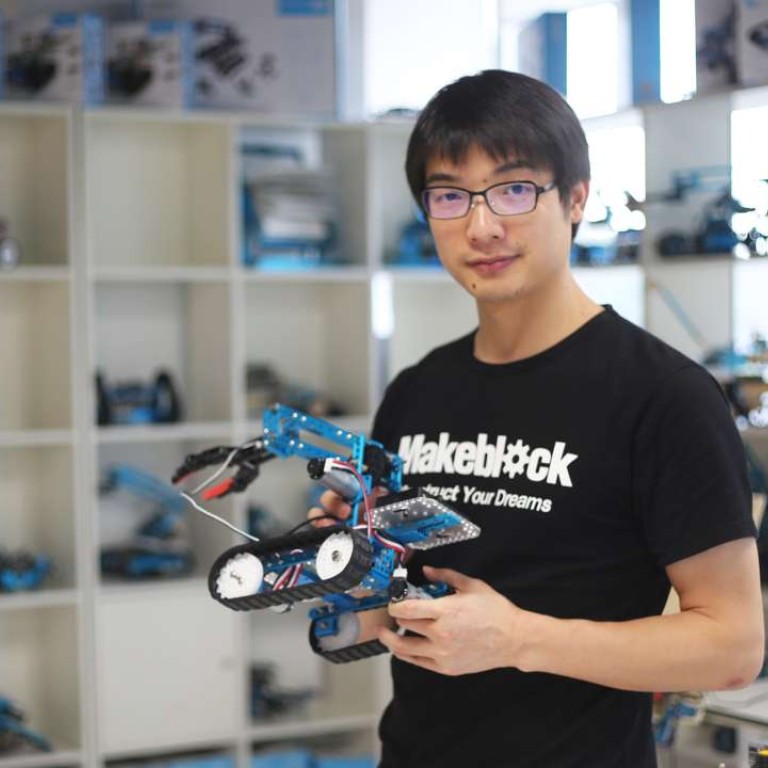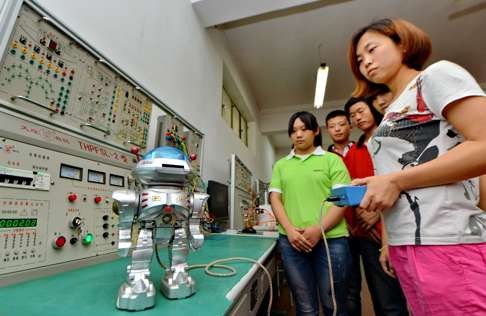
Chinese start-up Makeblock aims to help students learn programming for robots
Chinese hardware start-up Makeblock aims to help students build robots and learn to write computer programs in a fun and educational way as the trend of incorporating robotics into education becomes a global.
The Shenzhen-based company, which has an open source construction platform that allows users to easily put together various mechanical parts and electronic modules, currently works with about 300 primary schools across China to provide robot kits that let students put together simple robots. Students are able to operate their robots by writing a simple program, which the company believes will help users gain the mindset and thought processes of a programmer.
While other educational robotic sets such as the Lego Mindstorm series cost upwards of US$300, Makeblock’s robotic kits start from about US$95. One of the company’s most popular products is its mBot kit, which raised over US$285,000 in its Kickstarter crowdfunding campaign in April last year. The company’s robotic kits work with mBlock, a program that lets users easily control their robots’ movements by dragging and dropping pre-loaded commands.
“I started Makeblock because I wanted to help people turn their ideas into reality,” said Jasen Wang, chief executive and founder of Makeblock. “There are many people out there like me who want to create different kinds of robots, but do not have an engineering background. Makeblock helps to reduce the barriers to entry in robotics.”
Although the company first started out creating robot parts for the do-it-yourself community in Shenzhen in 2013, Makeblock has since shifted its focus to science, technology, engineering and mathematics (STEM) educational robots because of the comparatively larger market and the belief that it is essential to encourage creativity and innovation in the younger generations.
“STEM education is very important because it helps to stimulate students’ imagination and creativity,” Wang said.

Several primary schools in Zhengzhou, a city in Henan province, and schools located in the Jiangsu province have already teamed up with Makeblock to create innovation centres or a robotics labs for students to explore the robotics field.
A report by the International Federation of Robotics forecasts that about 3 million robots for education and research are expected to be sold from 2015 to 2018, with the number growing to 6 million for toy and hobby robots.
Last week, Makeblock also launched a new browser-based programming platform titled Makeblock Education. The platform, which is targeted at Chinese users, allows them to program their robots using pre-loaded commands in the web-based application.
“Makeblock Education is even easier to use, as users don’t have to install any program on their computer to write code. They can just write a program directly from their browser and even share it with other members in the community,” Wang said, adding that community interaction will foster even more creativity among members.

